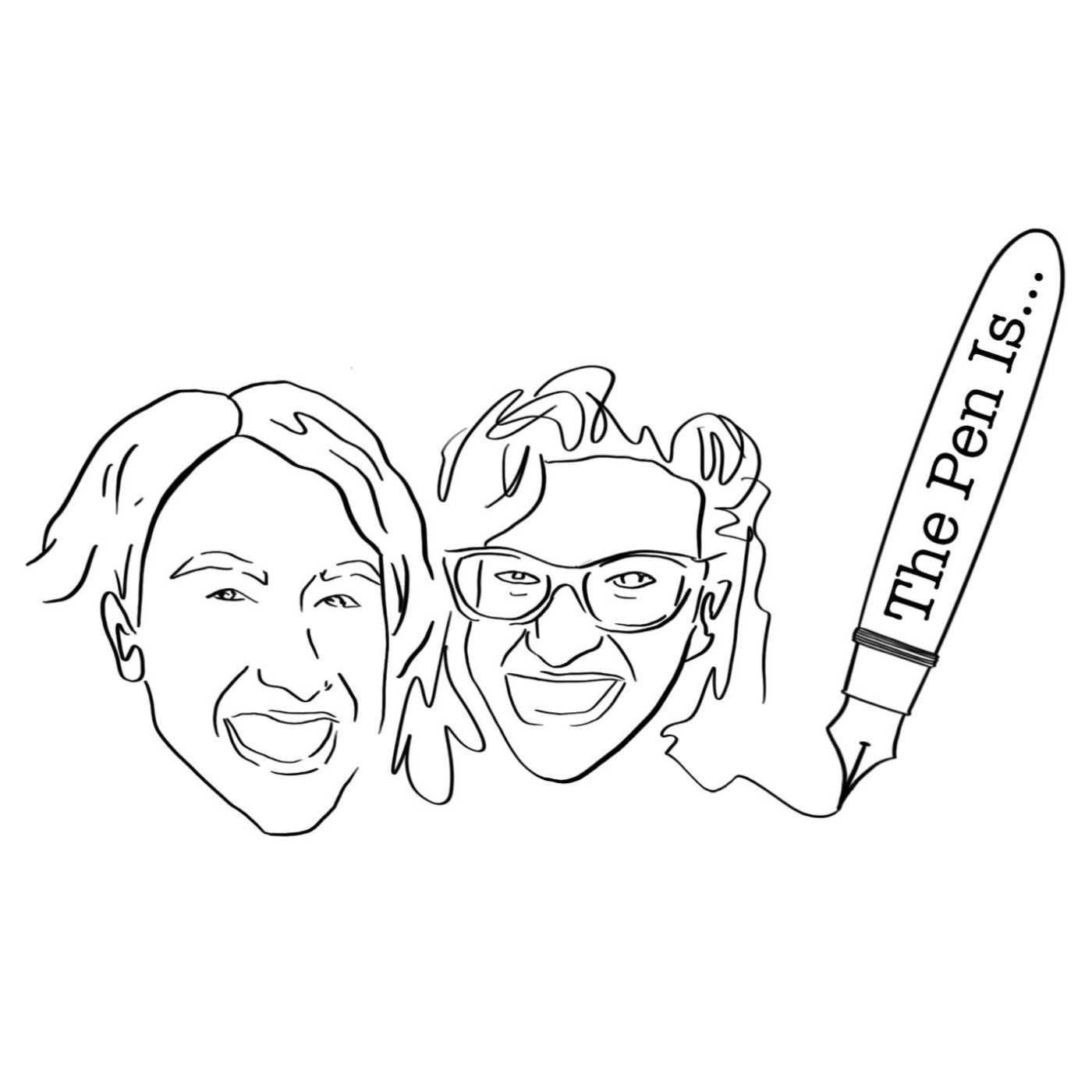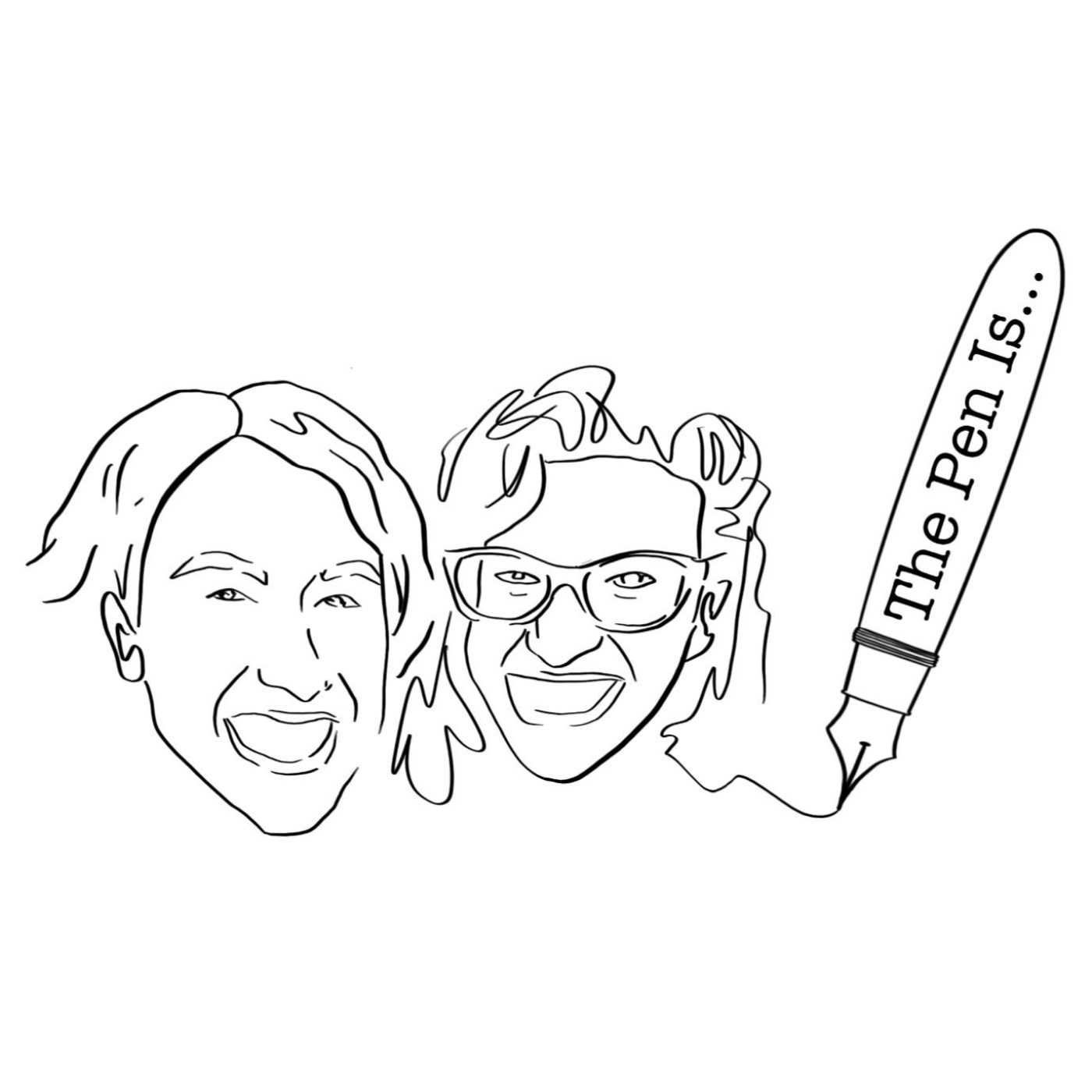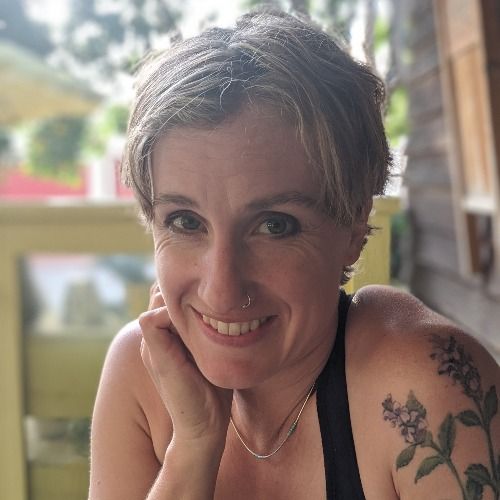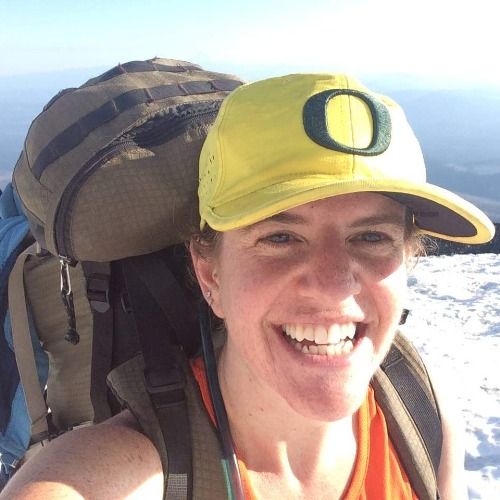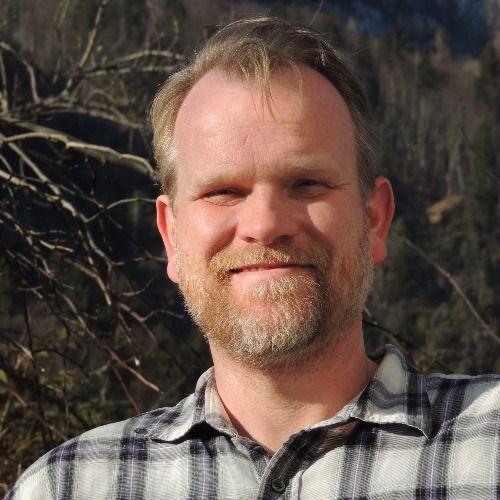Episode 3
...Discussing Jewish Identity
Hana writes a piece about her identity as a Jewish person and discusses it with Ana, delving into her family history and the experience of being the grandchild of Holocaust survivors while living in Bavaria, the historical home of the Nazi Party.
Originally recorded August 23, 2020.
Hana - what is it like to be a modern Jewish woman with my parents’ and grandparents’ experiences and their influence on my development?
This is such a large question, I could spend the rest of my life writing about this and wouldn’t be able to cover it entirely, in part because my perception of my Jewishness continues to change throughout my life as I gain new experiences and insights into myself and my family. Growing up in Los Alamos, I was a member of a small, close-knit, and very quirky Jewish community. I was used to not knowing a lot of other Jews and encountering Jewish kids who seemed to want to downplay their Jewishness, something I believe they did because it was associated with nerdiness or being the “other.” Many of my friends and acquaintances were quite religious, whether they were Catholic, LDS, Baptist, or some other Christian denomination (to be totally honest, I get confused easily by Protestant sects - Lutheran, Methodist, Presbyterian,...my eyes glaze over and I assign them all to a big box in my head where they sit all jumbled together). They would go on mission trips to Mexico to build houses and were active in their church youth groups.
I was also very involved in the youth group at our Jewish center - we weren’t a synagogue or shul and were unaffiliated with any larger movement, I think to remain as inclusive as possible in a community where the nearest other options were an hour away in Santa Fe. Our youth group was affiliated with a Zionist organization, something that I’ve been unpacking in the years since my eyes were first opened to the fact that the Israeli-Palestinian-general Middle East situation isn’t one- or even two-sided. I was so involved that I became our youth group leader and joined the regional board in 9th grade, eventually becoming president of a territory spanning the Mountain West from Montana to El Paso (the rest of Texas we wisely left in its own region) and organizing and attending multiple conventions for hundreds of kids ranging in age from 8 to 18. I was also very involved in our local community, serving as a Sunday School teacher and attending bar and bat mitzvahs regularly every year of kids I had babysat at numerous High Holiday services.
Outside of the youth group, Los Alamos’s small Jewish community, and my scattered extended family, I knew no other Jews. My few experiences at summer camp didn’t leave me with a favorable impression of other Jewish kids, especially my first encounter with Jewish American Princesses when I was 15, at camp in New York for what I still consider the worst month of my life. By the time I was an adult and meeting other Jews in college and afterward, I found that I felt awkward in large groups of other Jewish people. I didn’t feel like an imposter, but it felt strange to NOT be the “other” for once. This also produced a strange, underlying anxiety in me, as though gathering in large groups was drawing too much attention and asking for trouble. This, from a culture that has passed down its stories of continued persecution for generations and has instilled an almost pathological protectiveness and anxiety alongside its vaunted emphasis on education and debate.
Once I left Los Alamos and stopped going to services on a regular basis, I felt detached from my Judaism for a number of years. This had begun earlier, when I realized at age 13-14 that I no longer believed in God, leading me to believe that I could no longer consider myself religiously Jewish. In my early 20s, Judaism was purely a cultural touchstone, one where I could host Passover seders and make jokes about anti-Semitic conspiracies, but which no longer held a deeper meaning. I had several friends who were also Jewish, but none of us fit the stereotype of New Yorkers who liked to argue and hated hiking. We all enjoyed going to pancake breakfasts at the local Hillel, but I never thought about attending Shabbat services there and only went to High Holidays services when it was convenient. I joined a nominally Jewish sorority during my junior year of college, but rarely participated and was almost proud of being a slacker sister. The fact that the sorority wasn’t limited to people who identified as Jewish also reassured me that it wasn’t too Jewy, too revealing of my otherness.
That detachment changed when I began my graduate studies in social work, which happened during the three consecutive years when my three remaining grandparents all died, cutting off a major link to my family’s history. Learning about intergenerational trauma and placing religious and ethnic identities within the larger context of intersectionality and systems of power and oppression, I developed a keener sense of my “otherness” and began to see it as something to be explored, rather than hidden away and ignored. I bitterly regretted not having asked my dad’s parents more about their experiences surviving the Holocaust, pogroms, lingering post-war antisemitism, and the transition to life in a new country after they emigrated to the US. My maternal grandparents, whose parents moved to the US before the Nazis came to power, had also left much unsaid about their own Jewish identities and experiences before they died.
I’m not quite sure, in my mid-thirties, how I would describe my relationship to Judaism and my Jewish identity. Especially now, having moved to Bavaria, the former beating heart of the Nazi Party, I am constantly aware of my Jewishness. Whether it’s seeing place names like Dachau, or being asked about my German last name, there are constant reminders that make it hard to feel completely at ease. For the first year here, I was reluctant to disclose my Jewish background to any Germans, something that has changed as I’ve become more comfortable with the German language and the cultural mores of rural Bavaria.
As I’ve grown older, I’ve also become much more aware of the incredible diversity among Jewish people around the world and in the US. So often, the cultural image of a Jewish person in the US traffics in common tropes - the strident New Yorker, the self-deprecating comedian, the Hollywood liberal celebrity, the East Coast intellectual. But the reality is much more interesting and varied than that and what my own experience has exposed me to. Jews from non-Ashkenazi traditions - Sephardi, Mizrahi, Persian Jews, Ethiopian Jews, Indian Jews, Chinese Jews, mixed race Jews, people who have converted or whose parents have converted - these all contribute to a rich tapestry of identities that have as our common thread a religion and its cultural traditions. I was reading recently about a resurgence of interest in Jewish identity among young Polish people - people who come from Jewish families but, much like the conversos of Spain and its colonies, didn’t realize it because their parents and grandparents hid that aspect of their identity in order to be safe from continued persecution after the end of World War II. Decades after the fall of the USSR and 75 years after the Holocaust ended (but not widespread antisemitism in eastern European nations), people in their 20s and 30s are discovering a part of their heritage that they never knew existed before. The fact that there are so many stories of discovery, reinvention, connection, rivalry, loss, fear, perseverance, joy, kvetching and kvelling gives me hope in my continued journey with my own identity that there will always be new things to experience, enjoy, and learn from.
